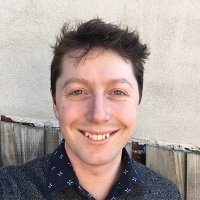Samuel Watts

Samuel Watts is a PhD Candidate in History and a teaching assistant in both History and Politics at the University of Melbourne. His research focuses on the experiences of African Americans in the Deep South during Reconstruction. In 2018, he was the recipient of the Wyselaskie Scholarship in History. He is the managing editor of ANZASA Online, an American studies blog.
When the last C-17 cargo plane left the Hamid Karzai International Airport on 30 August with the remaining US soldiers and diplomats, America’s longest war officially came to a close. The swift return of the Taliban was a deeply distressing and tragic end to a war whose close, nevertheless, came partly as a relief. The inevitable question as to what lessons America – more particularly, its mil ... (read more)
William Darrah Kelley – a Republican congressman from Philadelphia – stood at the front of a stage in Mobile, Alabama, watching as a group of men pushed and shoved their way through the audience towards him. It was May 1867, Radical Reconstruction was underway, and Southern cities like Mobile were just beginning a revolutionary expansion and contraction of racial equality and democracy. The Re ... (read more)
On the morning of 6 January 2021, President Donald Trump addressed a crowd of his supporters outside the White House for more than an hour. The president urged protesters who had already begun gathering along the National Mall to go to the Capitol Building where both houses of Congress were about to start the process of certifying the results of the electoral college, formalising Joe Biden’s vic ... (read more)
Rising to the lectern amid a tightly packed crowd in the Cambridge Union’s debating hall, James Baldwin began quietly and slowly to speak. ‘I find myself, not for the first time, in the position of a kind of Jeremiah.’ It was February 1965, and Baldwin was in the United Kingdom to promote his third novel, Another Country (1962). Baldwin’s British publicist had asked the Union if they would ... (read more)
Andrew Johnson’s first day in the White House was less than promising. Whether, as his supporters claimed, he was suffering from illness and had attempted to self-medicate or had simply been celebrating his new position as vice president, Johnson was devastatingly drunk. It was 3 March 1865, the Civil War was rapidly drawing to a close, and the recently re-elected President Lincoln was to delive ... (read more)
